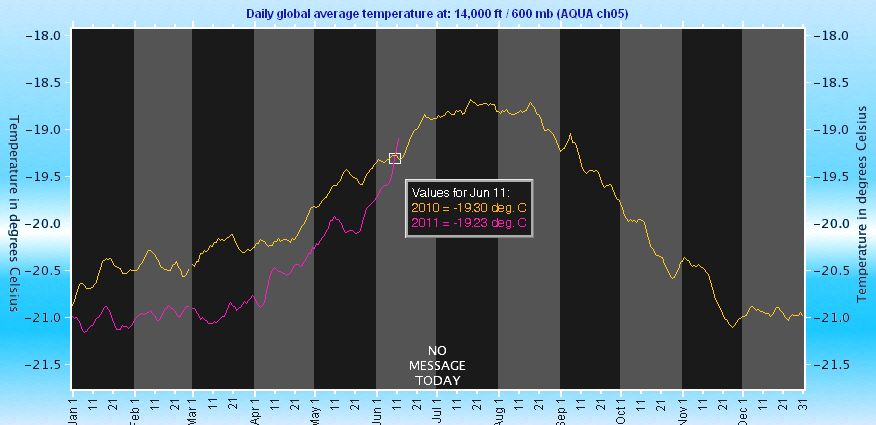By Robert Romano – On June 7, a massive solar flare was observed that spewed a cloud billions of tons of solar material into space, before much of it landed back upon the sun’s surface.
I’m not a climate scientist, but it would seem that since the only reason the Earth is not a frozen rock in space is the sun, that the solar firestorm may have had a significant impact on global temperatures in its aftermath. Seems reasonable.
After all, it only takes about eight minutes for solar radiation to travel to the Earth.
On June 8, just a day after the flare, cities like Washington, D.C. (99 degrees), Baltimore, Md.(99 degrees), Syracuse, N.Y. (97 degrees), Newark, N.J. (99 degrees), and Philadelphia, Pa. (97 degrees) all set new records in temperature.
Suddenly, it got really hot. So, the question is why? Was it the solar flare?
Duke University’s Dr. Nicola Scafetta may have an answer. He has been studying solar variability and its impact upon global temperatures for years now. But it may be too early to tell.
“Right now it is not possible to arrive to any conclusion. There [is] no data available for analysis,” he said when reached for comment.
He explained, “Solar flares can only contribute to a small spike in the solar output… If any effect may exist I would say that the occurrence of large solar flare events may affect the upper atmosphere in such a way to partially reduce the cloud cover which would cause a warming in some region.”
“But,” he added, “this is only an unproven speculation right now.”
In 2003, along with Dr. Bruce West, Scafetta wrote based on his research that “Earth’s short-term temperature anomalies and the solar flare intermittency are linked.” Scafetta and West explained, “any significant changes in solar activity should result in equivalent changes in the earth’s global temperature.”
Meaning, after the tremendous solar flare on June 7, there could have been some measurable impact on the Earth’s temperature, as it appears there was with this most recent flare.
On Dec. 5, 2006, the last time a solar flare of this magnitude was measured, there certainly was a noticeable increase in global temperatures throughout the month of December that year, as measured by NASA’s Distributed Information Services for Climate and Ocean Products and Visualizations for Earth Research (DISCOVER).
DISCOVER is also showing a spike over the past few days as noted in the chart below. This will be the first time this year that global temperatures have come above their 2010 baseline:
So, how much does the sun affect temperature on Earth?
In 2008, Scafetta challenged man-made causes of climate change, concluding in a presentation to the Environmental Protection Agency that “up to 65 percent [of] the observed warming since 1900 was directly or indirectly induced by the sun according to current TSI [total solar irradiance] proxy models”.
That calls into question the billions dollars invested by governments in researching human causes for global temperature fluctuations, and the billions more that is being spent to transform advanced economies away from the use of carbon-based fuels like oil, coal, and natural gas. Are all these government-imposed, economy-changing regulations based on an erroneous theory?
It should be interesting to see what scientists like Scafetta are able deduce from this most recent solar flare, and what impact it may have had on global temperatures.
Will this solar flare mark a turning point on the debate of human versus solar causes of global temperature anomalies? If it does, it could be cause for Congress to act soon to overturn the EPA’s so-called carbon “endangerment” finding that seeks to regulate carbon emissions throughout the entire economy — all without any vote of the people’s elected representatives.
Because, in the end, if the sun, and not man, is responsible for significant climate changes experienced on Earth, then this is an aspect of nature far beyond our capacity to influence, let alone regulate by law.
It is a humbling lesson, but also an important one from a policy standpoint. We cannot control these natural forces, and it takes an extraordinary arrogance believe that we can, let alone to waste limited public resources to try to “save the world”.
Robert Romano is the Senior Editor of Americans for Limited Government.







